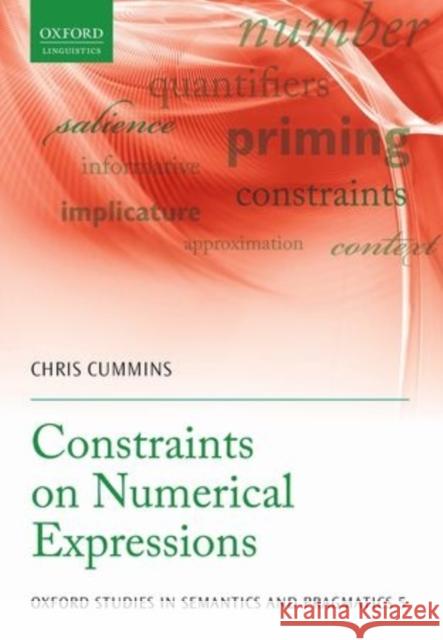Constraints on Numerical Expressions » książka
Constraints on Numerical Expressions
ISBN-13: 9780199687909 / Angielski / Twarda / 2015 / 256 str.
This book considers how expressions involving number are used by speakers and understood by hearers. A speaker's choice of expression can be a complex problem even in relatively simple-looking domains. In the case of numerical expressions, there are often many choices that would be semantically acceptable: for instance, if 'more than 200' is true, then so is 'more than 199', 'more than 150', and 'more than 100', among others. A speaker does not choose between these options arbitrarily but also does not consistently follow any simple rule. The hearer is interested not just in what has been said but also in any further inferences that can be drawn.
Chris Cummins offers a set of criteria that individually influence the speaker's choice of expression. The process of choosing what to say is then treated as a problem of multiple constraint satisfaction. This approach enables multiple different considerations, drawn from principles of semantics, philosophy, psycholinguistics and the psychology of number, simultaneously to be integrated within a single coherent account. This constraint-based model offers novel predictions about usage and interpretation that are borne out experimentally and in corpus research. It also explains problematic data in numerical quantification that have previously been handled by more stipulative means, and offers a potential line of attack for addressing the problem of the speaker's choice in more general linguistic environments.











